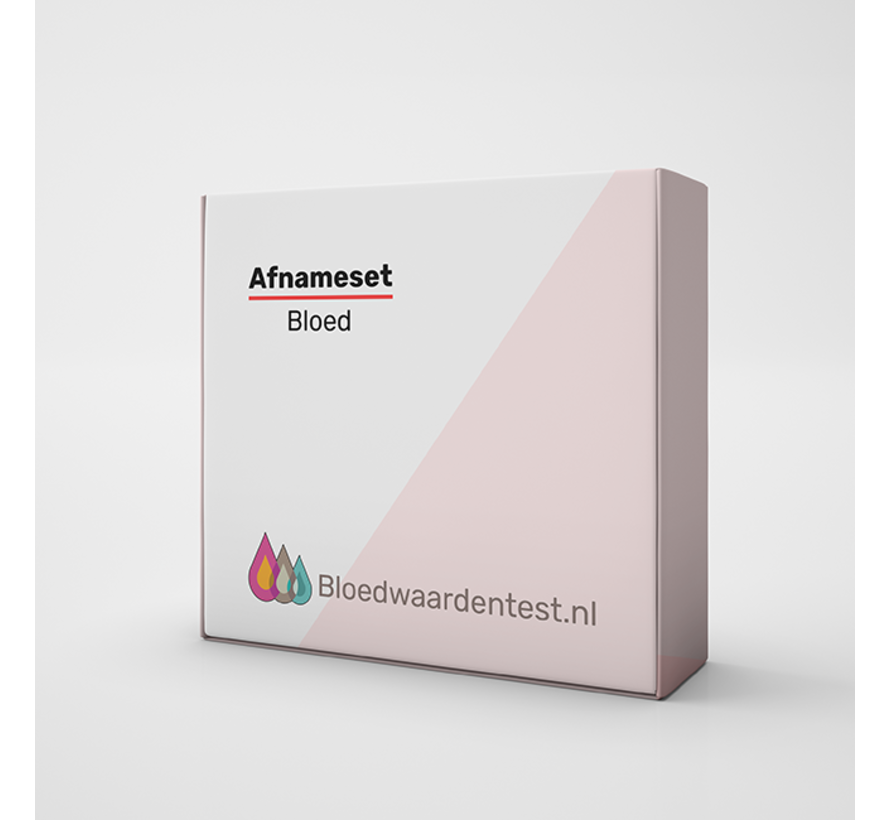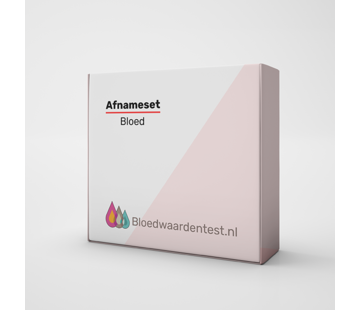Tired Check-up
Investigate your fatigue
Are you tired? Do you have trouble getting out of bed, can't face the day until after a strong cup of coffee, or can't stop yawning during the day? If you want to do something about your fatigue, it is important to know why you are so tired. (WP2).
This study tests:
- Blood tests:
- Magnesium
- Anemia; Hb
- New as of 01-01-2024: RDW-CV (Redd Cell Distrubution Width).
- Iron
- Thyroid; TSH,
- Vitamin B12
- Vitamin D3
- Liver; GGT
- Stress hormone; cortisol
- Diabetes: glucose
- Inflammation: CRP
- Urine examination: (cystitis, dehydration)
- pH
- Specific gravity
- Bilirubin
- Ketones
- Glucose
- Protein
- Urobilinogen
- Nitrite
- Leucocytes
- Erythrocytes (blood, hemoglobin)
Fourteen causes of fatigue and some solutions.
1. Too little sleep
It sounds like an open door, but maybe you just don't sleep enough. That you should be under for at least eight hours every night is a myth. Everyone has different sleep needs: some are rested after six hours, while others can use up to nine hours of sleep. Those eight hours are true for about two-thirds of people. If you sleep less than you need, you notice it during the day. You feel tired and have trouble concentrating.
Magnesium deficiency can cause sleep problems.
Put sleep a little higher on your priority list. Go to bed at a set time and get out at a set time. Ban laptops, phones and the television from your bedroom because you sleep better in a dark space.
2. Sleep apnea
Some people think they sleep enough, but are awake at night more often than they think because they have apnea. With sleep apnea, your breath pauses for a moment each time, causing you to wake up automatically. After such a pause, you immediately doze off again, so usually you don't notice it. The result: you think you make it eight hours, but are actually awake half the night. As a result, you are very tired and sleepy during the day.
Losing weight and quitting smoking can help. Stop drinking alcohol an hour or two before going to bed. Sleeping aids and tranquilizers worsen apnea, so omit them. For severe sleep apnea, a nasal mask (CPAP) or anti-snoring brace may help.
3. Not enough fuel
Your body needs sufficient fuel to function properly. If you eat too little or do not get enough nutrients, you will not become fitter. A healthy diet is therefore important. Don't skip breakfast, eat enough protein and carbohydrates and take healthy snacks in between to keep your energy levels up.
4. Anemia
Red blood cells contain hemoglobin. You need this to transport oxygen through your body. If there are too few red blood cells in your blood or if they do not work properly, we speak of anemia. Because less oxygen is being transported, you may experience symptoms such as fatigue, feeling weak and dizziness.
Iron deficiency is a well-known cause of anemia, but there are many more. For example, blood loss, conditions that counteract red blood cell production and increased red blood cell breakdown. Therefore, the treatment of anemia depends on the cause.
5. Depression
Depression is not only a mental illness, it also contributes to a variety of physical problems. Fatigue, headaches and decreased appetite are among them, for example. If you feel gloomy and tired for a few weeks, you may be struggling with depression.
Sometimes depressive symptoms blow over on their own. If they continue to bother you, psychological help, medication or a combination of both is the next step.
6. Slow thyroid
Your thyroid gland regulates your metabolism by producing hormones. If it works too slowly and thus produces too few hormones, it is called hypothyroidism. A sluggish thyroid causes you to tire easily and feel sluggish. You may also feel cold and gain weight. Blood tests can tell if you have a slow thyroid. Medications can make up for the lack of thyroid hormones.
7. Caffeine
A cup of coffee keeps you awake and alert, but an overdose of caffeine actually makes some coffee drinkers tired. Don't stop drinking coffee all at once, as you will experience withdrawal symptoms. Build up your caffeine intake by gradually reducing your coffee, tea, chocolate and cola consumption.
8. Urinary tract infection
If you have had a urinary tract infection once, you will recognize the symptoms immediately. You have to urinate often and it is accompanied by a burning sensation. Yet a urinary tract infection does not always announce itself so clearly. Sometimes fatigue is the only symptom. A urine test shows whether you have a urinary tract infection. For sun infection, you get antibiotics.
9. Diabetes
Diabetics have high blood sugar levels in their blood. The sugars are not converted into energy in the cells, but remain in the blood. This causes your body to run out of energy. A different lifestyle, such as diet and more exercise, can help with type 2 diabetes. If you have type 1 diabetes, you have to inject insulin.
10. Dehydration
Fatigue can also be a sign that you are dehydrated. Your body needs enough fluids to work properly and cool yourself down. Don't wait until you get thirsty, but drink throughout the day. Drinking about 1.5 liters a day is enough.
11. Heart problems
If you feel tired easily during your daily activities, it may indicate that your heart is not working properly. If things that used to be easy suddenly become difficult, you should visit your doctor.
12. Irregular work
If you work irregular hours or work night shifts, you are disrupting your biological clock. You are tired when you have to work, but if you have to catch up on your sleep during the day, you will not succeed.
Try to make your bedroom as dark as possible when you need to rest. In a darkened, quiet and cool room, you will fall asleep more easily. Supplements with melatonin can also help.
13. Food allergy
There are doctors who believe that food allergies make you sleepy. Should you get a dip just after eating, you may have a mild form of food intolerance. Try leaving out one food item at a time to find out which one makes you tired or order extra the Imupro examination at this research.
14. Chronic fatigue
If you are so tired that it interferes with your daily life and it has been going on for more than six months, there may be more to it. Chronic fatigue syndrome and fibromyalgia have more features, but one of them is persistent, unexplained fatigue.
For this test, it's best if you have your blood drawn before 10 a.m. See the explanation at Cortisol Stress Hormone Adrenal Hormone
See instructional video for taking urinalysis here:
















